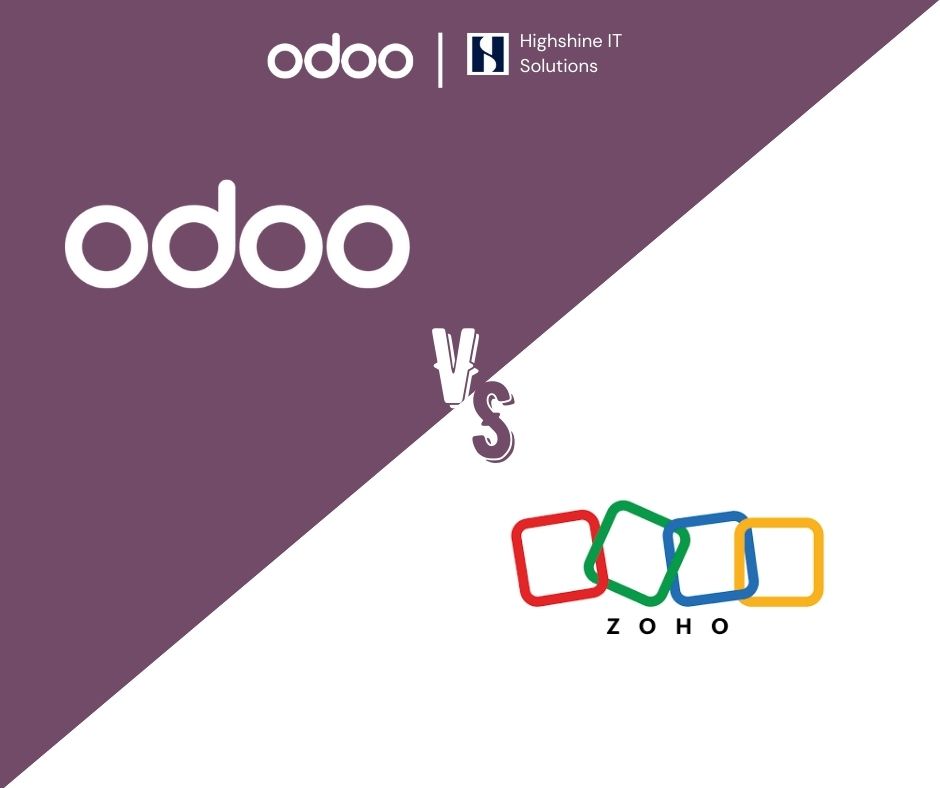
ERP for Small Businesses: Is Odoo or Zoho the Better Choice?
Introduction
For small businesses, choosing the right ERP system is more crucial than ever. As these enterprises grow, their operational complexities also increase, necessitating a robust system to manage processes efficiently. Enter ERP for small businesses, a tailored solution designed to handle everything from inventory to human resources.
Two notable contenders in this arena are Odoo and Zoho, offering distinct advantages for SMEs. In this article, we explore the strengths and weaknesses of both platforms, providing a detailed ERP comparison for 2025 to help you decide which might be the better choice for your business.
Understanding ERP Needs for Small Businesses
Small businesses face unique challenges when implementing an ERP system. Unlike larger corporations, small businesses frequently function with constrained budgets and resources, which necessitates a focus on scalability and cost-effectiveness. A successful ERP for small businesses must offer the following:
Affordability: Budget constraints require cost-effective solutions.
Scalability: The ability to expand as the business grows.
Ease of Use: User-friendly interfaces reduce training time and costs.
Core Features: Inventory management, accounting, HR, and customer relationship management are essential.
These elements form the backbone of effective business management software tailored for SME solutions.
Overview of Odoo: Strengths and Weaknesses
Odoo ERP has evolved substantially since its inception, positioning itself as a leader in modular ERP solutions. Its journey from a basic open-source solution to a comprehensive business suite is remarkable. Let's explore its strengths:
Odoo shines with its highly customised ERP modules, offering flexibility across various business functions. For example, manufacturing companies that work from Sales to procurement, production, accounting, and HR (horizontal operations), Odoo is best suited for their requirements.
Businesses don’t need to choose and pay for each module they require. It offers flat pricing per seat regardless of the tools used by the company, making Odoo an attractive option for companies that may need various features but don’t want to pay for multiple licences
For multi-department ops and integrated data management (purchase data connected with procurement, inventory, production and sales data), Odoo fits the bill.
However, Odoo isn't without its drawbacks. The vast array of features and modules can lead to complexity and a steep learning curve for new users. This complexity might require additional investment in training and support.
Steep learning curve: Navigating dozens of modules and countless settings requires significant upfront training. Small teams often struggle to onboard without dedicated support resources.
Lengthy, disruptive rollout: Migrating legacy data and configuring workflows can take weeks or months. During that time, everyday operations may slow or stall.
Escalating subscription fees: Despite Odoo’s complete suite of tools are cheaper than Zoho, each additional user adds to the monthly bill. In most use cases you don’t need a complete suite of tools for all users, but since Odoo’s pricing is not tiered (based on usage), adding more users can be somewhat of an overhead expense. However, Odoo has released a new licensing model were if you need only HR suite, you will have to pay only 25% of the licensing cost for it.
As your team grows, Odoo expenses can become a substantial overhead.
Integration challenges: Connecting non-Odoo tools often requires custom APIs or middleware. Ongoing maintenance of those bridges adds operational complexity.
Overview of Zoho: Strengths and Weaknesses
In contrast, Zoho ERP has built its reputation on simplicity and integration. With a wide array of integrated business software offerings, Zoho caters to businesses seeking streamlined operations. Its strengths include:
User-Friendliness: Zoho's intuitive design makes it easy to use, reducing the need for extensive training.
Integration: Seamless integration with other Zoho apps and third-party services provides a cohesive business environment.
Nevertheless, Zoho can fall short in customisation for more complex business needs. While excellent for straightforward operations, businesses requiring extensive customization might find Zoho limiting.
One major drawback of Zoho is that it was built as a monolith. While it has changed its offerings to suit small businesses, it still lacks robustness as compared to Odoo. Also Zoho is good for companies with Vertical operations and if there’s not much cross departmental collaboration, Zoho can be a good tool.
If you are a small company that needs the complete suite for business, Zoho will be comparatively more expensive. For every function like Sales, HR, Finance, you have to purchase a separate license.
Detailed Comparison: Odoo vs Zoho
When comparing Odoo vs Zoho, several factors come into play:
Cost and Pricing Models
Zoho pricing is app-based, so they have rules in place to determine whether the company is growing, such as the number of transactions, the use of different currencies, and so on, and force customers to subscribe to a more expensive user licence. Odoo has only one metric for pricing, and that is the number of users
Both platforms offer competitive pricing, but their approaches differ. Odoo’s modular pricing allows for a pay-as-you-go model, which can be cost-effective for businesses only needing select features. Zoho, on the other hand, offers tiered pricing plans, which might be more predictable for budgeting but less flexible.
Feature Set and Customization
Odoo is renowned for its extensive ERP features and unparalleled customization options, making it ideal for businesses with complex, multi-department operations. Zoho excels in offering a broad suite of integrated tools, perfect for vertical operations focusing on specific functions.
User Experience, Support, and Integration
Zoho scores high on user utility and onboarding experience; Odoo scores high on flexibility, workflow simplicity for complex processes, and customizable user experience for scaling operations.
Both platforms offer strong integration capabilities, but Zoho’s seamless integration with its ecosystem is particularly noteworthy.
Considerations for Future Growth and Scalability
As businesses evolve, their ERP systems must adapt. Scalability is a critical consideration:
Odoo: Offers significant scalability through its modular architecture, making it suitable for businesses planning to expand across multiple departments.
Zoho: Provides scalability within its ecosystem, ideal for businesses focusing on specific verticals with plans for moderate expansion.
Flexibility and adaptability are key when considering future business growth.
For companies anticipating rapid expansion or diversification, Odoo’s customizable modules offer a robust solution. Conversely, Zoho’s ease of use and integration make it a strong contender for businesses that prioritize streamlined operations.
Conclusion
In the debate of Odoo vs Zoho, the choice of ERP for small businesses ultimately hinges on aligning the solution with business goals.
Odoo is ideal for hyper-growth, large companies, or those with complex inter-departmental needs, as well as exotic businesses which need customizationsor highly custom business processes.
Zoho is a great fit for single-department companies and those seeking simplicity and quick setup, such as exclusive subcontractors or vertical-focused SMEs.





